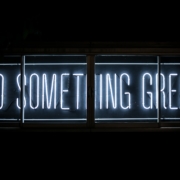Introduction
What is the most powerful currency for a facilitator? What really makes a facilitator a true helper?
Since I began to consciously think of myself as an organisation development consultant, I have always wondered what qualities I need to possess to be considered a competent and effective helper. I tend to use the term “helper” in place of “consultant”. I feel that people who support organisations in their quest to perform or become better are in the first instance helpers. This view of who a consultant, particularly an organisation development one, is became even clearer when I read Edgar Schein’s book entitled “Helping” . In the same week I read the book, I had the fortune and privilege of meeting and spending an entire day in the presence of Schein in Central London. I could have been in his space forever.
In “Helping”, Schein truly distils invaluable gems and pearls of wisdom arising from his more than 40 years of working as an organisation development practitioner-helper and an academic at the Massachusetts Institute of technology (MIT) and other prestigious institutions. With maximum ease and grace, Schein shares how his work as a helper has permeated both his professional and private life. He also shares his real life experiences that demonstrate how easy it is to be a helper, when we consciously make the decision to be one.
I have often wondered whether mastering cutting edge techniques for assessing the needs of the clients is what it takes to be an effective helper. There are times when I have considered excellence in action research and the ability to ask what Nancy Kline calls incisive questions as the main currency of an effective helper.
In my early days as a consultant, I depended on producing sleek power point slides and well-bound colourful reports for my Clients. Appearance was everything. Today, this is important, but not at the same level as the need to truly listen to my client.
Experimenting with Listening
In the middle of 2011 Liberal Seburikoko (my Wasafiri co-consultant) and I got the opportunity to do work for an organisation that needed to make some fundamental decisions about its reason for existence, structure and ways of working. During our preparation for the assignment and especially when carrying out the diagnostic phase, Liberal and I consciously decided to put into practice the notion of “undivided attention when you are listening to the client”. We listened with deep respect and without any sense of judgement. We asked questions only to access our ignorance.
For nine days we simply listened and asked questions. In between interviews with respondents Liberal and I spent time reflecting on what we had heard and learnt from the previous interview. We resisted getting into interpretation. Our focus was on ‘taking in data’.
On the tenth day, I damped all the notes we had been taking, locked myself in my hotel room to begin the process of report writing. I began to draft the report. It was extraordinary how the report came together. It was like while we were listen to respondents information was treating itself and coalescing into right places in my mind and heart. My job that day was simply to punch my laptop’s keyboard, drawing on what my inner eye had been privileged to see during our data collection process. After six hours of tapping the laptop buttons, we had a 26-page draft report.
Lessons learnt
Responding to the draft report, the chief executive of the client organisation wrote to saying, “This is truly a professional job you have done. You are experts at helping organisations”. Rather than swim in the glory that Liberal and I are expert, I have a clue of how the result came about:
1. That we listened in a non-judgemental way. We engaged our respondents in a manner that showed that we were fully present to learn from them. We simply ‘buried’ ourselves in the data we were hearing. We were genuinely interested in learning about them, their organisation and how they worked. We listened. One of my teachers, Lance Secretan, says, “The words listen and silent are the same, too, save for the order of the letters. We cannot listen clearly until we are silent. Do you silence your mental chatter, your internal critics, and your distractions so that you may listen more deeply to others and yourself? We cannot hear until we are silent, until we suspend our opinions, arguments, and judgements and deeply drink from that to which we are listening.”
2. We asked questions. These were not questions to prove how clever or knowledgeable we were as consultants. They were questions to enable us access our ignorance about the organisation and its people. We went into the assignment knowing nothing about the organisation. It was clear that all our knowledge and information was going to come from literature review and talking to people who knew different parts of the organisation much more than ourselves. With humility, we asked questions to learn. Because we were privileged to learn from diverse data sources, our knowledge grew exponentially within a very short period of time.
3. Deep respect for the client and its people. Liberal and I consciously thought about the need for respect for our client organisation and the people connected to it. They had called us in to help not because they were stupid. They asked us to help because they were aware that some of their challenges could be best resolved through the involvement of an ‘outsider’. To that extent, we – the helpers – were privileged to be asked to be in their midst so that they could get to where they wanted to be. Another way to respect the client is to practice non-judgement. “Judgement is the constant evaluation of things as right or wrong, good or bad. When you are constantly evaluating, classifying, labelling, analysing, you create a lot of turbulence in your internal dialogue. This turbulence constricts the flow of energy between you and pure potentiality. You literary squeeze the ‘gap’ between thoughts.”
4. We drew on expert knowledge. Being students of organisation development, innovation and change and management science, we tapped into this rich tapestry of information, tools and techniques. We identified the best model for doing diagnostic work. We used some of the cutting-edge techniques for collecting data from groups. Mee-Yan often says to be an effective helper in organisation development; you have to be an intellectual scavenger. It means you are immersed in searching for knowledge from diverse sources – social and human sciences – so that you have multiple lenses through which you can see human and group dynamics.
Giving feedback
During the feedback process, our aim was to play the mirror to the board. This entailed presenting the organisation back to them in the language and images they recognised. It also meant sharing about the side of the organisation they were less conscious of. Liberal and I deliberately chose the language we used to communicate the feedback. We stated what was working well in the current system. We pointed out what we had come across as less helpful behaviours and processes. In fairness, different parts of the organisation knew what was not working well but had not been noticed by the system as a whole.
We presented to the board the various possible futures we had heard from the different sections of the organisation and its network. We shared a bit of our own perspectives. After we had facilitated the feedback conversation, the board knew exactly where they wanted to take the organisation. The joy of seeing a client find answers to their own challenges was even more rewarding than the promise of a pay cheque.
Conclusion
Our work was a success because Liberal and I had listened and utterly respected our client. My mentor and one of the world’s leading experts in Organisation Development, Mee-Yan Cheung Judge, rightly calls this work as “sacred work”. It is sacred because leaders and their organisations – in trust – invite you and I as consultants to help them. If we pitch ourselves well enough, those who invite us will open themselves to us like a flower. They will share their views and feelings; their aspirations and fears. They will share their hopes. They expect us to help. Pitching ourselves well enough is the ability and commitment to build trusting relationships with those whom we work. “Trusting relationships require us to stay authentic, congruent, open and transparent. Our possession of these qualities is not so much from the use of techniques and tool kits, but the result of our deep inner work.” As Mee-Yan would say, this is life-long learning.
We help, firstly, through who we are. The value we hold and how we manifest them. Second, we help because we have learnt, through practice, how to support a client in finding solutions to their own challenges. To hold the space for the client in this manner while facing the pressure to come across as having the answers the client needs is difficult. The ability to stay comfortable with holding the space rather than pretending you have the answers the client needs is the real expertise in organisation development work.
In this example I am sharing about the answers the client was looking for came with phenomenal ease. All because we had listened. What then makes listening so important? “There is something good which comes out of the lack of listening. It means that when you do listen, really listen, to someone, the experience will be so novel and so special for them, you will have a friend for life.” Some of the respondents would say, after the interview, “I feel so relieved!” or “I feel a lot better!” or “You have given me the reason to continue standing up for what I believe.”
Listening, in my opinion, is the most valuable currency we brought to the assignment. The question is, shouldn’t this be normal and obvious to everyone? Should this not be something everyone does? People should not be paid for the obvious. I could be mistaken. May be humanity has lost the obvious – the ability to listen. This could explain why people are paying for it.




